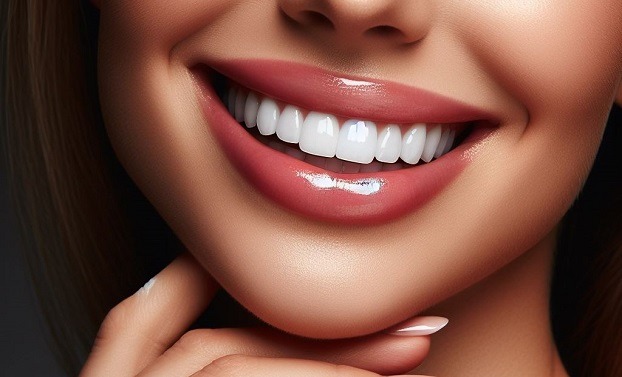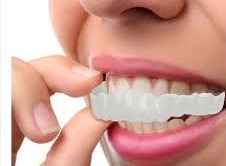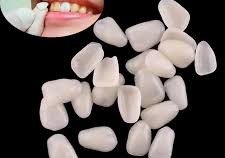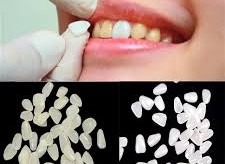Hey there! Considering a sparkling smile upgrade with dental veneers? You’re in the right place to learn all about what veneers can offer and what you should think about before deciding. In this blog, we’ll break down the dental veneers pros and cons. So, let’s get started and see if they’re a fit for your smile goals!
What Are Dental Veneers?
Dental veneers are thin covers that adhere to teeth to give them a classically shaped look. Often made from porcelain or composite resin, these little marvels are the secret behind many celebrity smiles you admire on the red carpet!
How Veneers Are Installed
Curious about how veneers are put on? It’s fascinating! The process usually requires a few visits to your dentist – one for a consultation, another to prepare your teeth, and a final one to apply the veneers.
During the preparation visit, your dentist will remove a small amount of enamel from your teeth to make room for the veneers. It sounds a bit scary, but it’s a common procedure and well worth it for the results. Before Veneers installation you must know about dental veneers pros and cons.
Types of Veneers
Here are some types of veneers.
Porcelain Veneers
Porcelain veneers are the gold standard in veneer materials, known for their strength, durability, and natural appearance. They are made from a high-quality ceramic that mimics the translucency of natural teeth, making them virtually indistinguishable from your real teeth.
Porcelain resists stains better than other materials, so if you’re a coffee lover or wine enthusiast, these might be the perfect choice for you.
Composite Resin Veneers
Composite veneers are crafted from a resin that is sculpted and bonded to your teeth in layers. They can be a great option if you’re looking for a less invasive and more cost-effective alternative to porcelain. While not as durable as porcelain, they are easier to repair if they get damaged.
Lumineers
Lumineers are a brand of ultra-thin porcelain veneers that require minimal to no tooth preparation. They are about as thin as a contact lens and are a popular choice for those who want to avoid the enamel removal associated with traditional veneers.
Removable Veneers (Snap-On Veneers)
A newer option in the world of cosmetic dentistry, removable veneers, also known as snap-on veneers, are a non-permanent solution that can be worn over your natural teeth. They are ideal for special occasions or as a temporary solution while waiting for more permanent veneers.
Also Visit: Best Teeth Aligners
Let’s discuss some dental veneers pros and cons, you must know before using veneers.
10 Pros of Dental Veneers
Here are some advantages of dental veneers.
Instant Cosmetic Correction
Dental veneers offer a quick fix to numerous dental issues—from staining and discoloration to chips and gaps. If you’re looking for a fast way to improve your smile’s appearance without multiple treatments, veneers can provide that instant beautification.
They’re custom-crafted to fit your teeth and can dramatically change your smile’s look in just a couple of appointments.
High Stain Resistance
Say goodbye to worrying about coffee, wine, or smoking stains. Porcelain veneers come with an impressive resistance to stains.
Unlike natural teeth, the smooth, glazed surface of porcelain doesn’t hold onto stains, which means your smile stays brighter longer. This feature is especially attractive if maintaining a white smile is important to you.
Minimal Tooth Structure Removal
When it comes to preparation, less is more. Veneers require minimal removal of tooth structure compared to crowns or other more invasive procedures.
This aspect is crucial for those who prefer to keep as much of their natural tooth intact as possible while still achieving significant aesthetic improvement.
Strength and Durability
Though thin and seemingly delicate, veneers are incredibly durable. Made from strong materials like porcelain, they can last up to 15 years with proper care. This makes them a long-term investment in your smile that is both cost-effective and reliable over time.
Customizable for Your Smile
Every set of veneers is tailor-made to fit the individual’s teeth, ensuring a natural look that enhances your unique smile.
You can choose the shape and shade that best fits your facial features and personal style, making sure that your new smile looks like it was always meant to be yours.
Also read: Natural Remedies For Tooth
Boosts Confidence
A great smile can be a significant confidence booster. With veneers, you can achieve the smile you’ve always wanted, which can make you feel more confident in both personal and professional settings.
This psychological benefit is one of the key reasons many choose to invest in veneers.
Less Invasive Than Other Dental Restorations
Veneers can solve cosmetic issues without the need for more invasive procedures like dental crowns or orthodontics, which may involve more extensive preparation or a longer treatment timeline.
For those who want significant aesthetic changes without major dental work, veneers are an excellent choice.
Can Correct Multiple Flaws
Veneers are incredibly versatile and can be used to correct a wide range of dental imperfections at once. Whether it’s misalignment, uneven tooth size, cracks, or gaps, veneers can cover these flaws effectively, giving you a more uniform and pleasing smile.
Predictable Results
Thanks to modern dental technology and the customization process, the outcomes with veneers are highly predictable.
You can even see a preview of what your veneers will look like before they are permanently applied, ensuring you are happy with the potential results.
Potentially Reduces Sensitivity
By covering the front surface of your teeth, veneers can act as a shield for sensitive teeth, reducing discomfort from hot or cold foods and beverages. This is a lesser-known but highly appreciated benefit for those who struggle with tooth sensitivity.
Also read: Reminralize your teeth
10 Cons of Dental Veneers
Here are some cons of dental veneers.
High Initial Cost
One of the biggest drawbacks of dental veneers is the cost. They can be quite pricey, especially if you opt for high-quality porcelain veneers.
This initial investment might not be feasible for everyone, making it important to consider your budget and look for potential financing options if needed.
Irreversible Process
Once you decide to go for veneers, there’s no turning back. The procedure involves removing a thin layer of your tooth enamel to fit the veneer, which is an irreversible process.
This permanent change requires commitment, so be sure you’re ready for it before proceeding.
Potential for Damage
While veneers are durable, they aren’t indestructible. They can chip or crack if subjected to excessive force, such as biting down on hard foods or objects.
Replacing a damaged veneer can be as costly as getting a new one, so it’s crucial to treat your veneers with care.
Increased Sensitivity
Some people experience increased tooth sensitivity after getting veneers. This happens because the process of removing enamel can expose the more sensitive layers of your teeth to cold water and hot temperatures.
While this sensitivity usually subsides, it can be uncomfortable for a while.
Not a Solution for All Dental Problems
Veneers are primarily cosmetic. They can’t fix underlying dental health issues like tooth decay, gum disease, or root infections. It’s essential to address any oral health issues before considering veneers.
Color Mismatch Over Time
If only some of your teeth are veneered, you might find that your natural teeth and veneers don’t age the same way. Teeth whitening treatments do not affect veneers, which could lead to a noticeable difference in tooth color over time.
Replacement Needs
Although durable, veneers aren’t a lifetime solution. They typically need to be replaced every 10 to 15 years, depending on how well you take care of them. This ongoing maintenance can add to the long-term cost and commitment.
Limited Repair Options
If a veneer chips or cracks, it often needs to be replaced entirely since repairs are usually not possible. This limitation can add unexpected expenses and inconvenience to your dental care routine.
Risk of Gum Tissue Reaction
Some people’s gum tissues may react negatively to the veneer material, leading to discomfort or inflammation. Choosing a reputable dentist and high-quality materials can help minimize this risk, but it’s still something to be aware of.
Requires Healthy Teeth as a Foundation
Veneers need a certain amount of healthy tooth enamel for proper adhesion. If your teeth are extensively damaged or weakened by decay, you might not be a candidate for veneers without undergoing other dental treatments first.
Also read: Causes Of Pimple At Roof Of Mouth
Are Veneers Bad For Your Teeth?
While veneers don’t necessarily harm your teeth, there are a few things to think about and must to know about dental veneers pros and cons. To fit the veneers, a little bit of enamel must be removed from your teeth.
This treatment is irreversible. If done by a skilled dentist, this usually doesn’t damage your teeth, but it does force you to live with veneers forever because your natural teeth will then need to be protected. Veneers can significantly enhance your smile and are safe when installed and maintained properly.
However, not everyone can profit from veneers, particularly if they have bad dental hygiene or are in poor health, as these conditions can reduce the advantages and shorten the lifespan of the restoration.
Also read: Make Tooth Powder at Home
Considerations Before Deciding on Veneers
After knowing dental veneers pros and cons, here are some considerations before deciding on veneers.
Assessing Your Needs
First things first: consider what you’re looking to achieve. Are veneers the best solution for your particular dental concerns?
Veneers are fantastic for addressing cosmetic issues like discoloration, minor misalignments, and gaps, but they might not be suitable if you have significant dental health issues. Think about your long-term goals for your smile and discuss these with your dentist to determine if veneers will meet your needs.
Choosing the Right Dentist
Not all dentists specialize in cosmetic dentistry, so finding the right professional is crucial. Look for a dentist who has extensive experience with veneers.
Check their before and after photos, read reviews, and consider their training and credentials. A good cosmetic dentist will help you understand the process and set realistic expectations.
Veneer Consultation Process
During your consultation, your dentist will evaluate your oral health to see if you’re a good candidate for veneers. This is the time to ask all your questions.
How long will the veneers last? What’s the maintenance like? How much will it cost? Use this opportunity to express any concerns and learn about the procedure from start to finish.
Long-term Commitment
Veneers require a commitment to future maintenance and possibly replacement. Since the process is not reversible, you need to be comfortable with long-term upkeep.
This might include avoiding certain hard foods, taking care when playing sports, and attending regular dental check-ups.
Financial Considerations
Let’s talk budget. Veneers can be a significant investment, so it’s important to consider the financial impact. Many dental offices offer payment plans or financing options.
Make sure you understand all the costs involved, including potential future expenses for replacement or repair.
Also read: Care after Teeth Removal








